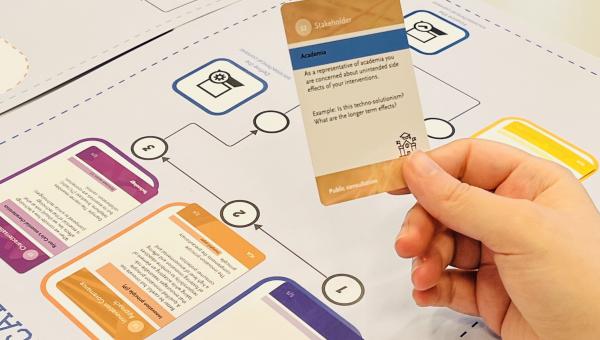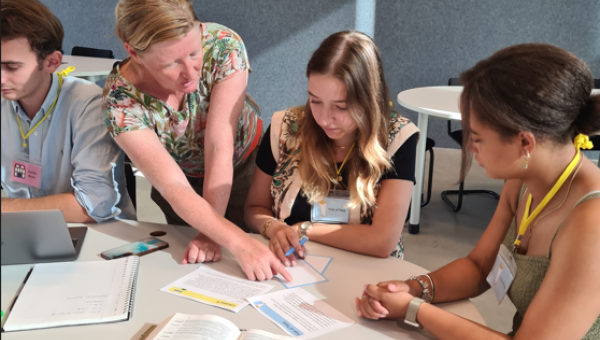Leading Education TLS
'Leading', that's how the visitation committee in 2024 referred to the learning environment of Tilburg Law School. Good teachers, who provide lively lectures and seminars, combine on- and offline learning activities into a rich learning environment. The interaction, variation, and depth this creates result in our students and teachers enjoying the classes more.
Attractive education that reaches its goal
-
Lively lectures
Lectures and seminars by excellent teachers, with ample room for interaction and inspiring materials and teaching methods.
More information -
Tailored learning tools
Great, varied learning resources. Video, animation, tools for students to learn together online, and much more. Customized developed for and by Tilburg Law School.
More information -

Powerful games
At home and during classes, our students achieve learning objectives in a playful manner through powerful games. Tailormade by Tilburg Law School.
More information
Available worldwide
Three of our Master's programmes are also fully available online (hybrid education). This means they are accessible regardless of where you live. In this way, we make our education more accessible, even for students who do not reside in the Netherlands.
Excellent content
In our lectures, the results of our research are prominently featured. This research focuses on current topics, such as climate, biodiversity, international conflicts, and the impact of technology. From the perspective of Law and Public Administration, we delve into these subjects and provide our students with a richer context.
Of course, we always proceed from our vision of education.
What does this yield?
- Engaging education that motivates our teachers and students.
- Effective education, yielding deep knowledge.
- Flexible education, allowing students to partly follow at their own time, place, and level.
Our teachers develop this learning environment, supported by an enthusiastic and experienced team of educational innovators and our Media Center.


